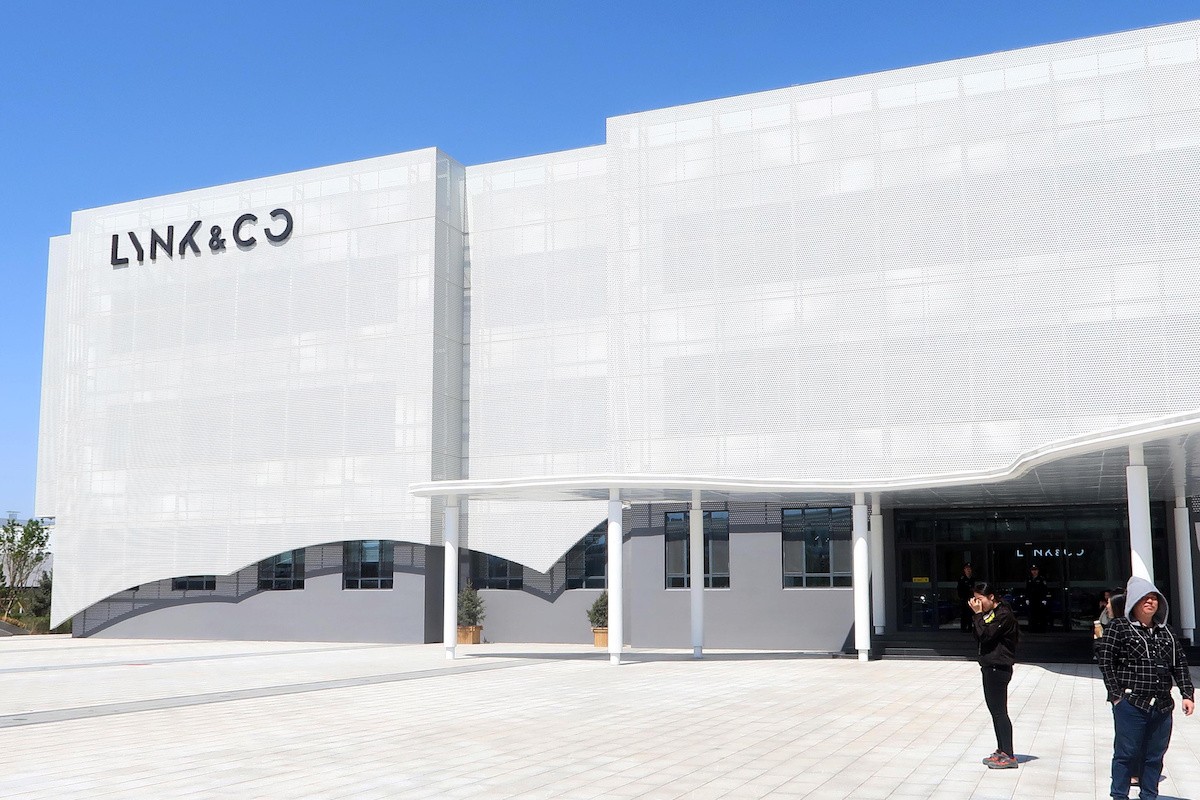In remote China, a high-tech auto plant flags global challenge
Change Size
 A general view of Geely's Lynk & Co plant in Zhangjiakou, Hebei province, China April 26, 2018. Picture taken April 26. (Reuters/Joe White)
A general view of Geely's Lynk & Co plant in Zhangjiakou, Hebei province, China April 26, 2018. Picture taken April 26. (Reuters/Joe White)
W
hile auto workers in Germany and South Korea fight to save their jobs, one of China's youngest auto brands is gearing up to build sport utility vehicles at a new factory with digitally-connected robots and a fresh workforce of 1,800 people.
A three-hour drive from the Chinese capital Beijing, the Lynk & Co plant in Zhangjiakou combines technology and manufacturing know-how from the Geely and Volvo Cars units of China auto giant Zhejiang Geely Holding Group.
The 12 billion yuan ($1.89 billion) investment is a bright, freshly painted example of the challenge confronting long-established auto factories in mature industrial economies.
As automakers adopt a new generation of manufacturing technology, industry officials are confident that they can deploy the same packages of robots, assembly line designs and digital quality control systems anywhere in the world - and train people to do the tasks robots cannot yet perform.
Plant manager Tong Xiangbei is in the vanguard of a tech revolution that enables automakers to put new factories in remote places like Zhangjiakou, a city of four million people in Hebei province and far from many of Geely's parts makers.
"With this team, we could go anywhere and replicate this factory," Tong, 42, who previously worked at Ford Motor Co , told Reuters during the first media tour of the factory.
The ability to build cars in almost any location that has electricity and decent roads is one factor behind Peugeot SA's clash with German workers over proposed cost-cutting at Opel brand factories once owned by General Motors.
GM this week agreed to invest $3.6 billion in its money losing South Korean operations only after unions representing workers at its plants agreed to allow the shutdown of a factory in Gunsan, Korea and gave concessions GM said will save $400 to 500 million a year.
With Lynk & Co, Geely is targeting younger and less affluent buyers than typical Volvo customers, but who still demand more sophistication and technology than a standard Geely Automobile Holdings Ltd car for the mass market in China.
Lynk & Co vehicles already are competing with GM, Peugeot and other automakers in China. The brand plans to begin production at a plant in Belgium in 2019, and begin sales in Europe in 2020. Geely and Volvo have said they plan to bring the brand to the United States, but have not said when.
"MIDDLE OF NOWHERE"
The Zhangjiakou complex will build the Lynk & Co 02 SUV and a sedan called the 03 for the Chinese market. Currently, the plant has about 1,800 workers on one daily shift, labouring alongside nearly 300 robots.
When the factory goes to a second shift, it will employ 3,000 people capable of building about 200,000 cars per year, Tong said. Those are employment and production levels consistent with mature market auto plants.
The factory uses Kuka robots to weld together the bodies of its vehicles - the same brand used by Daimler AG to build Mercedes-Benz cars.
U.S. firm Rockwell Automation and Germany's Robert Bosch Gmbh supply the technology used on the final assembly line.
A robot from ABB Ltd glues windshields into each Lynk & Co 02 sport utility, relieving human workers of that messy job.
U.S. tool maker Atlas Copco provided what plant manager Tong describes as a "huge-ass nut runner" that bolts wheels on vehicles, records the force used and sends the data to a cloud server.
The Zhangjiakou factory's advanced systems are evident in both the robots seen by journalists during the tour, and other things that are missing.
Unlike many older auto factories, there are no natural gas fuelled forklifts or tug vehicles operated by drivers to haul parts to the assembly line. At Lynk & Co, parts are brought to work stations by unmanned, automated machines.
For its human workforce, some of whom live up to 500 kilometres (311 miles) from the plant, the company is building housing for its employees, Tong said.
But he also saw benefits in the plant's remote location.
"We're in the middle of nowhere," he said. "We can expand any direction we want."









